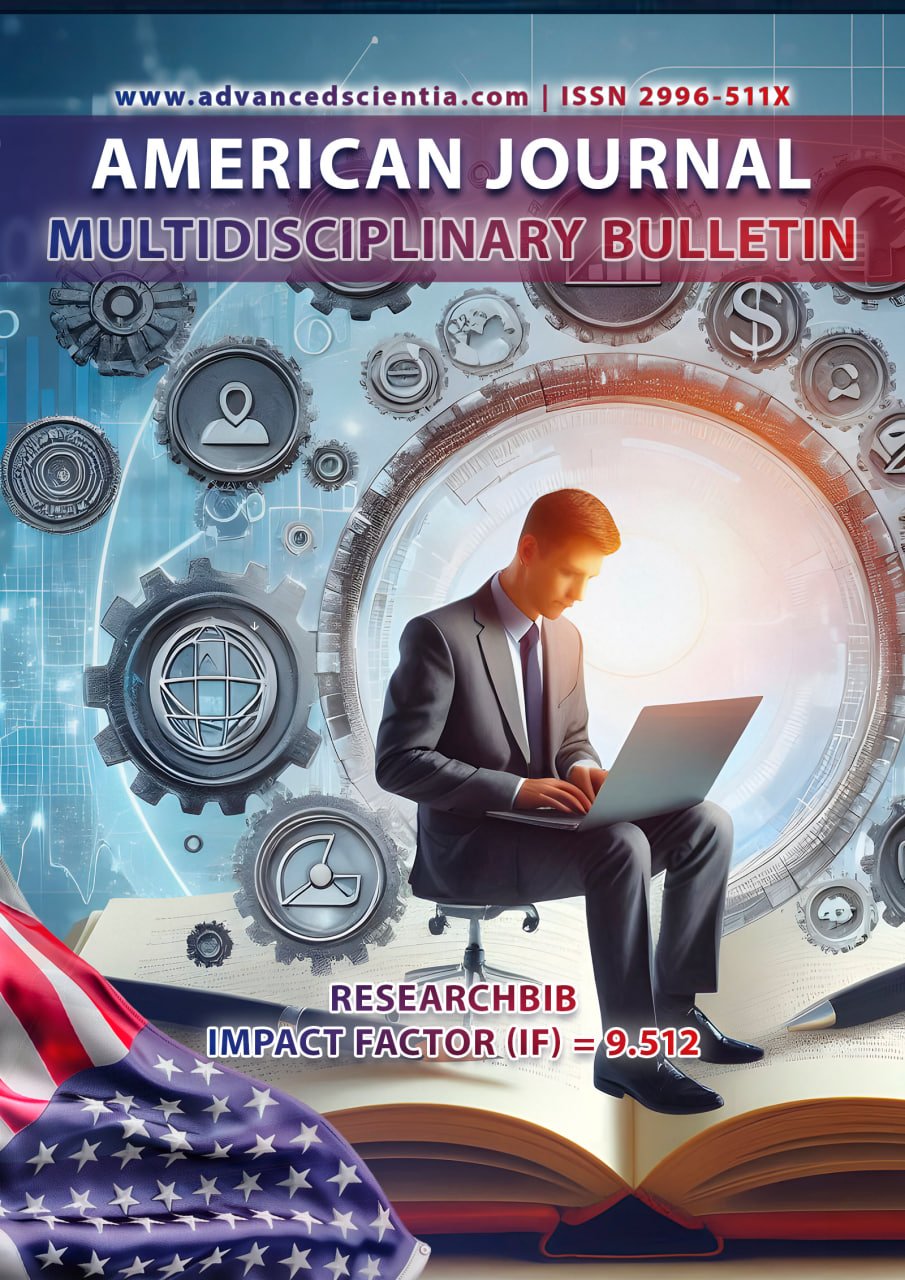BEGINNING ERA OF ROMANTICISM IN AMERICAN LITERATURE
Abstract
This paper explores the beginning era of Romanticism in American literature, focusing on its origins, key themes, and prominent authors such as Ralph Waldo Emerson, Edgar Allan Poe, Nathaniel Hawthorne, and Herman Melville. Through qualitative literary analysis of seminal texts, the study highlights the movement's emphasis on individualism, nature, spirituality, and psychological complexity. The research reveals how American Romanticism diverged from its European counterpart by incorporating national identity and democratic ideals, reflecting the cultural and social realities of early 19th-century America. The findings demonstrate that this literary movement played a crucial role in shaping America's distinct literary voice and laid the foundation for later intellectual and artistic developments.
References
1. Emerson, R. W. (1836). Nature. Boston: James Munroe and Company.
2. Emerson, R. W. (1841). Self-Reliance. In Essays: First Series. Boston: James Munroe and Company.
3. Hawthorne, N. (1850). The Scarlet Letter. Boston: Ticknor, Reed & Fields.
4. Melville, H. (1851). Moby-Dick; or, The Whale. New York: Harper & Brothers.
5. Poe, E. A. (1843). The Tell-Tale Heart. The Pioneer.
6. Poe, E. A. (1839). The Fall of the House of Usher. Burton’s Gentleman's Magazine.
7. Baym, N. (Ed.). (2007). The Norton Anthology of American Literature (7th ed.). New York: W.W. Norton & Company.
8. Miller, J. H. (2005). Romanticism and American Literature. Cambridge: Cambridge University Press.
9. Stauffer, A. (2013). Transcendentalism and Its Legacy. Princeton: Princeton University Press.






















